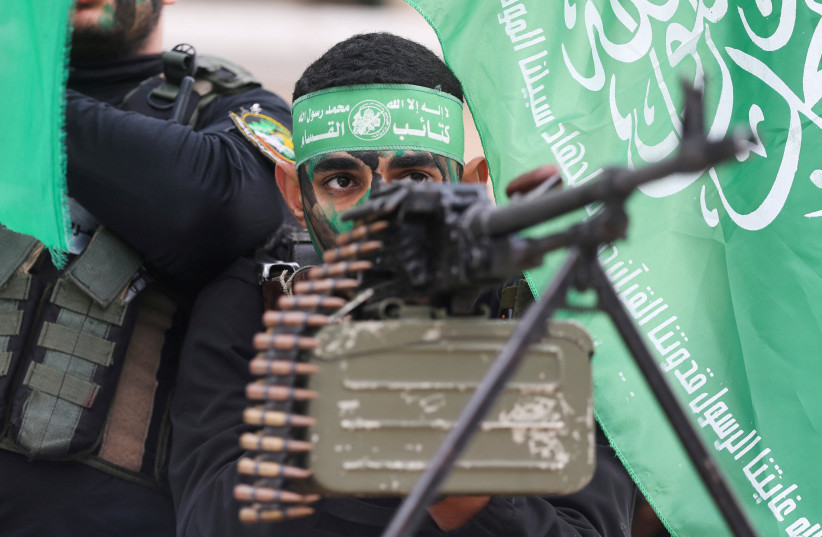In the face of escalating terror attacks, and at a time of internal tensions which impact on Israel’s foreign relations, the Israeli government must act to restore order and control. The current wave of terror is being fed by incitement surrounding the Temple Mount, encouraged by a string of “successful attacks.” Israel’s enemies see Israel as weak and confused.
Iran is implicated here too. However, it is Hamas that is a central cause of the current terror wave, through its leadership in Gaza and officers stationed in Lebanon. This Islamic terrorist organization wants to ignite all fronts so that Israel’s rivals close ranks against it.
Israeli policies at this time must balance between: 1. The desire for freedom of religious worship on the Temple Mount, and the necessity to restrict it from time to time; 2. The need to act deep inside Judea and Samaria in order to prevent attacks, and the desire to reduce friction and minimize casualties so as not to add fuel to the flames.;3. The need to exact a painful price from Hamas leadership, and the desire not to get into a fuller confrontation with Gaza at this time; 4. The need to act against each of Israel’s enemies, without driving them into a convergence against Israel.
An eye must also be kept on Iran
Israel also needs to keep its eye on the ball regarding the escalating confrontation with Iran, specifically halting Iranian nuclear progression and Iranian attempts to establish itself in Syria. After weighing these constraints there is still considerable room for Israel to act; to exact a high price from Hamas without being dragged into full-scale warfare.
Israel should once again consider targeted killings of Hamas leaders, and denial of work permits in Israel issued to Gaza residents. (Hamas views these work permits as one of its great achievements.) Israel should also act boldly against the developing Hamas military infrastructure in Lebanon.

Israel needs to be more transparent with its internal security program too, so that the Israeli public understands where the government is heading. This will reduce uncertainty and may have the positive side effect of moderating some of the current internal disputes.
SEVERAL WEEKS ago, even before the commencement of Ramadan, Mohammed Deif broke his silence in Gaza to call for a unification of forces on all fronts against Israel: “All flags will be united, and all fronts will be united for one great target – to free Palestine and return it to the arms of Islam.”
It can be assumed that he already knew that preparations had been completed to conduct the missile attacks on Israel from Lebanon, and he was merely waiting for an opportunity to carry them out. The events on the Temple Mount provided that excuse.
The security situation vis-à-vis Gaza is not expected to fundamentally change, even following current tensions. First, because any alternatives to the existing situation are just as bad and do not justify the price of change. Secondly, from Israel’s point of view, Gaza remains a secondary arena compared to Iran, and it would be unwise to allocate the necessary resources and attention to confronting Hamas in Gaza.
This does not mean Israel has to accept Hamas’ moves. On the contrary, Israel must prevent Hamas from any deviations from the red lines established during previous clashes.
Israel needs to cause the organization’s leadership to doubt its survivability; to fear the escalation of conflict with Israel. This is a difficult goal to achieve without taking the risk of being dragged into a broader battle. On the other hand, if Hamas does not pay a price beyond the “accepted equation,” it might be tempted to repeat its recent attacks.
What can be done?
First, Hamas leaders should fear targeted killings by Israel. This material threat should hang over their heads. This will encumber their conduct and will oblige them to divert attention and resources to maintaining their safety, thereby appearing weaker to their public.
Second, Israel should revoke some of its economic concessions, starting with work permits in Israel. These permits are perceived by the Palestinian public as a Hamas achievement. Revoking these permits, particularly during the Ramadan period, would direct public criticism toward Hamas, which would diminish the prestige it is trying to establish among its public. It would also have the added bonus of halting the financial gains it receives through this channel.
In addition, Israel can and should tighten its policy on the import of dual use goods into Gaza, which are utilized by Hamas to develop missiles and other weapons. This is an opportunity to drain the sources of military empowerment in Gaza, even at the cost of damage to civilian development projects in the area.
Regarding terror attacks emanating from Judea and Samaria, there seems to be no alternative other than the IDF carrying out targeted actions in response, even during the Ramadan period. Without this, the IDF and security forces will have a hard time preventing terrorist cells from organizing and carrying out attacks in the future.
As for Lebanon, Israel must go beyond targeting Hamas infrastructures there to targeting all Hamas personnel there.
Attention must also be devoted to tackling the challenges within Israel on two fronts. One is the problem of “family unification” whereby Palestinians from Judea and Samaria move to Israel, bringing deeply held hostilities with them. The other problem is the move of known sympathizers of ISIS and other radical Islamic organizations into Israel.
The writer is head of the Misgav Institute for Zionist Strategy & National Security, in Jerusalem. He served as National Security Council chief 2017-2021 and as a senior official in the General Security Services (Shin Bet).
